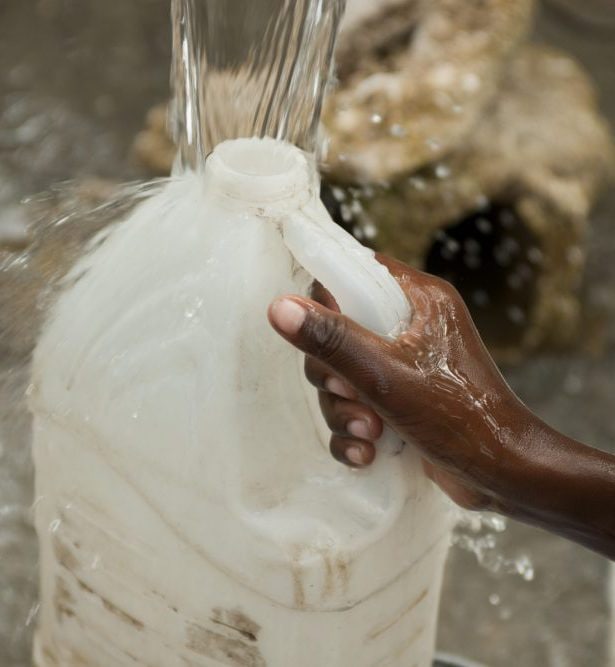Cholera in Haiti
Cholera resurgence in 2022:
After more than 3 years with no cases of cholera reported in Haiti, national authorities reported confirmed cholera cases in the greater Port-au-Prince area in October 2022.1
Publication Highlight
Cholera Outbreak — Haiti, September 2022–January 2023. MMWR Morb Mortal Wkly Rep 2023;72:21–25.
On October 20, 2010, the first outbreak of cholera ever confirmed in Haiti was recognized 10 months after the catastrophic earthquake that killed over 200,000 people and displaced over 1 million. At the time, this cholera outbreak was the worst in history, with over 820,000 cases and nearly 10,000 deaths.2, 3 From the beginning of the outbreak, CDC worked closely with the Haitian Ministry of Public Health and Population (MSPP) to control the cholera epidemic and reduce the impact of the disease.
Rapid response from CDC, the MSPP, National Directorate of Drinking Water and Sanitation (DINEPA), Pan American Health Organization (PAHO), United Nations Children’s Fund (UNICEF), and other partners prevented thousands of deaths from cholera. Cholera transmission continued throughout Haiti through early 2019, though cases and deaths declined steadily since 2016. From a peak of over 352,000 suspected cholera cases in 2011 and over 4,000 suspected cholera deaths in 2010, only 720 suspected cholera cases and 3 cholera deaths were reported in 2019.1 This represented a greater than 99% decrease in cases from 2011 to 2019.
After more than 3 years with no cases, national authorities reported a cholera outbreak in October 2022. As of November 7, 2022, the MSPP reported over 600 confirmed cholera cases and over 6,500 suspected cases in the greater Port-au-Prince area.1 CDC and partners are responding rapidly and coordinating with MSPP to prevent this cholera outbreak from spreading further.
Improving Haiti’s water and sanitation infrastructure, strengthening cholera surveillance, and targeted use of oral cholera vaccine are key to controlling the current outbreak and preventing cholera spread in Haiti. Improving case management efforts also contribute by reducing the mortality rate among those who get cholera.
- PAHO. Epidemiological Alert – Resurgence of cholera in Haiti – 2 October 2022.
- MSPP. National Surveillance Network Report: Cholera [PDF – 17 pages] (in French). 2020.
- Lee EC, Chao DL, Lemaitre JC, Matrajt L, Pasetto D, Perez-Saez J, et al. Achieving coordinated national immunity and cholera elimination in Haiti through vaccination: a modelling study. Lancet Glob Health. 2020;8(8):E1081-E1089.
